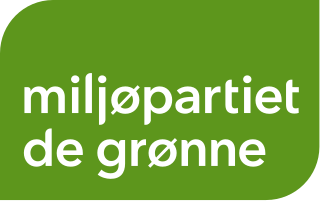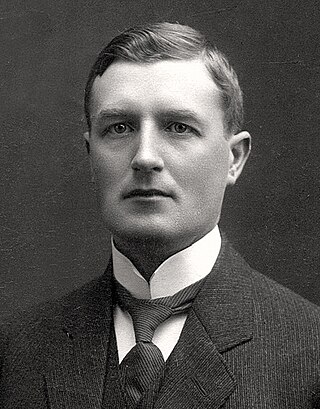
Kviteseid is a municipality in Telemark county, Norway. It is located in the traditional districts of Vest-Telemark and Upper Telemark. The administrative centre of the municipality is the village of Kviteseidbyen. Other villages in Kviteseid include Åsgrend, Brunkeberg, Eidstod, Fjågesund, Kilen, Morgedal, and Vrådal.

The Green Party is a centre-left green political party in Norway. The party holds three seats in the Parliament of Norway and also has representation in municipal councils and county councils.

The Fafo Research Foundation, also known as the Fafo Foundation or just Fafo, is a Norwegian research foundation and owner of the research institute: The Fafo Institute for Labour and Social Research. The institute conducts social research both in Norway and internationally. Fafo has its main office in Oslo and an office in Beijing.

Islam is the second largest religion in Norway after Christianity. As of 2020, the number of Muslims living in Norway was 182,607. The majority of Muslims in Norway are Sunni, with a significant Shia minority. 55 percent of Muslims in the country live in Oslo and Viken. The vast majority of Muslims have an immigrant background, and very few Norwegians are Muslim.
Foundations in Norway are independent i.e. self-owning juridical entities disposing assets that have been given by will, gift or other juridical dispositions for one or more purposes.
The Government agencies of Norway are state-controlled organizations that act independently to carry out the policies of the Government of Norway. The government ministries are relatively small and merely policy-making organizations, allowed to control agencies by policy decisions but not by direct orders. A minister is explicitly prohibited from interfering with the day-to-day operation in an agency or the outcome in individual cases. While no minister is allowed to give orders to agencies personally, they are subject to decisions made by the government. Also, the minister is normally the instance of appeals for agency decisions.
The Royal Ministry of Education and Research is a Norwegian government ministry responsible for education, research, kindergartens and integration. The ministry was established in 1814 as the Royal Ministry of Church and Education Affairs.

Magnus Bernhard Olsen was a Norwegian philologist who specialized in Old Norse studies.
The Norwegian Institute for Social Research is a private social science research institute based in Oslo, Norway.
As of 1 January 2024, Norway's immigrant population consisted of 931,081 people, making up 16.8% of the country's total population, with an additional 221,459 people, or 4.0% of the population born in Norway to two foreign-born parents. The most common countries of birth of immigrants living in Norway were Poland (109,654), Ukraine (65,566), Lithuania (42,733), Syria (38,708), Sweden (36,612), Somalia (27,665), Germany (26,860), Eritrea (25,137), the Philippines (24,718) and Iraq (23,603).
Fredrik Engelstad is a Norwegian sociologist. He has written several books.
Henrik Grue Bastiansen is a Norwegian historian who specializes in media studies.

Iver Brynild Neumann is a Norwegian political scientist and social anthropologist. He is Director of the Fridtjof Nansen Institute at Polhøgda, Lysaker, a position he has held since December 2019. From 2012-2017 he was the Montague Burton Professor of International Relations at the London School of Economics and Political Science. He has also served as Research Director and Director at the Norwegian Institute of International Affairs (NUPI) and adjunct professor in International Relations at the Norwegian University of Life Sciences.

Øyvind Torseter is a Norwegian artist, illustrator, comic book artist and writer. For his lasting contribution as a children's illustrator, Torseter was a finalist in 2014 for the biennial, international Hans Christian Andersen Award, the highest recognition available to creators of children's books.
Gro Steinsland is a Norwegian scholar of medieval studies and history of religion and since August 2009 has been the Scientific Director of the Centre for Advanced Study at the Norwegian Academy of Science and Letters.
Tove Stang Dahl was a Norwegian legal scholar, criminologist, Professor of Law at the Faculty of Law, University of Oslo from 1988 until her death, and a pioneer of "feminist jurisprudence".
Mette Andersson is a Norwegian sociologist. She is Professor of Sociology at the University of Bergen. Her fields of expertise are cultural and political sociology, especially migration, ethnicity and racism, identity and identity politics, social movements, sociology of sport, transnationality and religion.
Kirsti Koch Christensen is a Norwegian linguist that served as chancellor of the University of Bergen from 1999 to 2005.
Islamophobia in Norway refers to the set of discourses, behaviours and structures which express feelings of anxiety, fear, hostility and rejection towards Islam and/or Muslims in Norway. Islamophobia can manifest itself through discrimination in the workforce, negative coverage in the media, and violence against Muslims.
Hans Jacob Arnold Kreyberg was a Norwegian professor of economics. He was born at Levanger, grew up in Oslo and spent the first part of the Second World War in the USA where he graduated from Riverdale before entering the Norwegian medical corps alongside his father Leiv Kreyberg.







